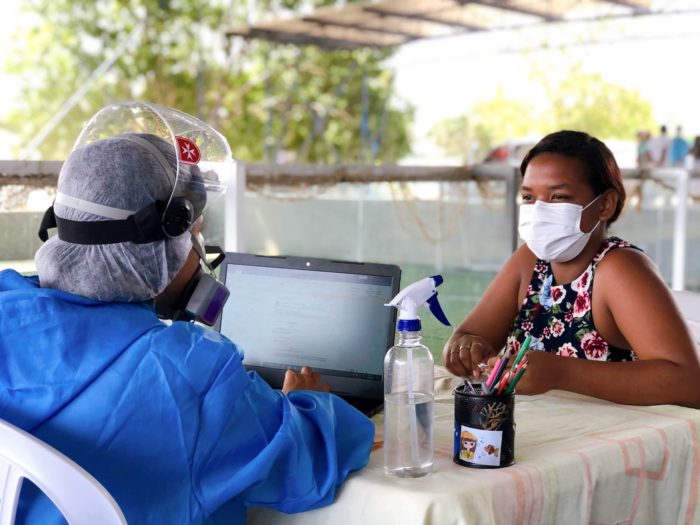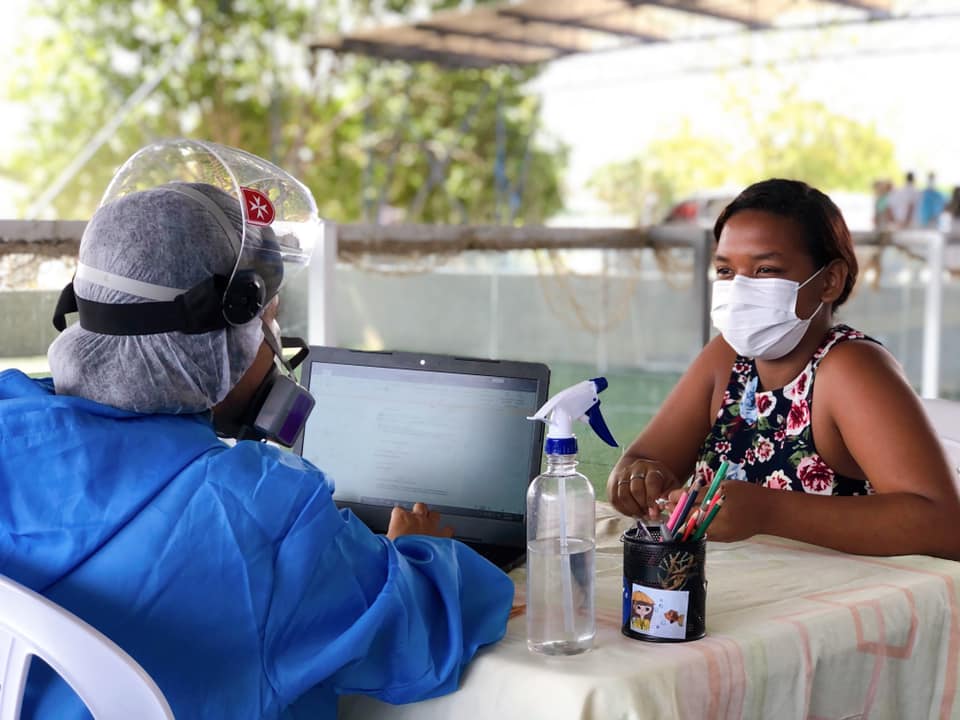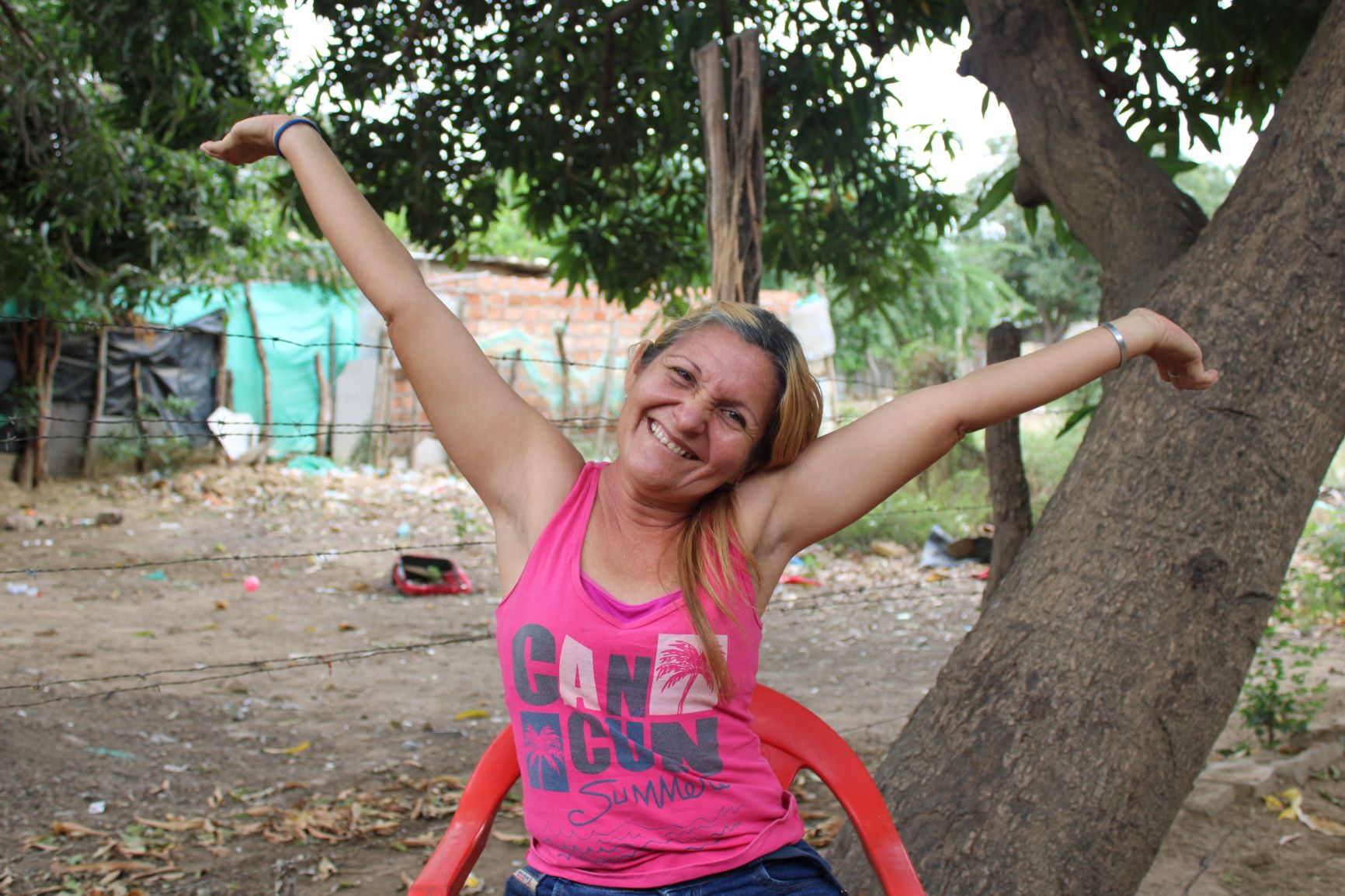South America
[EN] Reflecting on the Importance of Mental Health Programming for Migrants and Refugees
World Mental Health Day gives us an opportunity to reflect on the important intersection between global displacement and the growing mental health crisis. The material needs of populations displaced due to conflict and crisis are well documented and easy to comprehend. We have all read articles utilizing familiar tropes eliciting scenes of desperation, chaos, and flight “with nothing but the clothes on their backs”. Supporting refugees and migrants with life-saving tangible support such as food, water, shelter and health care is certainly a critical part of any humanitarian response. An issue that doesn’t always get the same level of attention or funding, however, is the mental health support required for refugees and migrants who have been uprooted from their homes.

The rapid escalation of the Venezuelan migration crisis left local governments, medical service providers, and humanitarian organizations struggling to keep up with the mental health needs of migrants and refugees. More than 5.6 million Venezuelans have left as a result of the ongoing instability and humanitarian crisis. Approximately 40% of them have fled to Colombia in search of stability and acceptance. The decline in quality of life for Venezuelans has triggered the largest migration crisis in the history of Latin America. Prior to the economic crisis, Venezuela’s thriving middle class made it one of the wealthiest countries in the region and Venezuela was the destination of choice for thousands of Colombians fleeing violence in the 1980s and 1990s. For Venezuelans who remember their country before the 2000s, the dramatic shift from a proud, functional democracy to a country where over 90 percent of the population is living in poverty and lacks access to basic food and medical supplies has been psychologically disorienting and disturbing.[1] Many Venezuelans who had stable jobs and family lives prior to the crisis, have been forced to improvise livelihoods in Colombia’s informal economy or elsewhere in the Americas, adding to feelings of depression and a sense of hopelessness.
A common thread connecting the experience of Venezuelan migrants to that of other refugees from war-torn countries (say, Syria), is a loss of identity and sense of belonging that comes from being uprooted from home. Studies have shown that this separation has a direct connection to elevated mental health risks as displaced populations have higher rates of depression, anxiety, and PTSD than their non-displaced counterparts.[2] Dealing with xenophobia and guilt, navigating structural and cultural differences while coping with the psychological state of limbo can be incredibly taxing for refugees as they look to establish themselves in a new country.
This issue is not unique to Colombia, as displaced Venezuelans throughout the Americas have been subjected to xenophobia, discrimination, and abuse as they sought to create new lives for themselves. In a study conducted by the Inter-American Development Bank, 33% of Venezuelan migrants living in Peru qualified for generalized anxiety disorder. Another 27% presented symptoms of clinical depression. These rates are far higher than average global rates of 4%-5% for both anxiety and depression – signs of a mental health crisis among Venezuelan migrants that has been exacerbated by the added financial and health system restrictions during the COVID-19 pandemic.[3] Within Venezuela, the national health system has been gutted as most qualified medical professionals have fled the country and hospitals lack the most basic medicines. The country’s suicide rate is the highest it has been in the past 30 years, ranking second only to Guyana in the Western Hemisphere.[4] Migrants arrive in Colombia malnourished, suffering from anxiety and depression, and in many cases severe trauma, after being exposed to abuse and exploitation during their journey.

Malteser International Americas (MI Americas) has been working closely with local partners and health ministries in the border departments of La Guajira and El Magdalena to address the deficiencies in mental health services available to Venezuelan refugees. Thanks to the Office of Refugee Populations and Migration (PRM) of the United States Department of State and the accompaniment of the International Organization for Migration (IOM), we celebrated the inauguration of the first center for basic mental health care in the department of La Guajira. The basic mental health care center is integrated into a local health clinic, IPSI Anashiwaya, and will provide psychological and psychiatric counseling, safe spaces for meditation and therapy, and will have experienced mental health professionals working with migrants and with the indigenous communities of the region.
For the past year, we have incorporated mental health support into the services provided at mobile clinics throughout La Guajira, supporting over 5,200 Venezuelan migrants with mental health consultations and overall working to break the taboos around mental health support. The Mental Health Center will serve as an added resource that anyone in need of support can rely on for consultations and treatment. This applies to the migrant community in La Guajira, local Colombians in need of support, as well as the humanitarian professionals who tend to them. Over the next year, we are aiming to support an additional 5,800 people with mental health consultations and train 50 mental health workers in La Guajira to staff the centers based in the departmental capital of Riohacha. Our continued work with PRM will focus on elevating the capacity of the local health system to attend to the primary and mental health care needs of Venezuelans in La Guajira.
As we mark World Mental Health Day, it is important to reflect on the strides the humanitarian community has made in addressing mental health in displaced communities, while also recognizing the gaps that still exist and how we can work together to address them. Globally, only 1% of the humanitarian health workforce are mental health workers.[5] As the pandemic has stimulated a great deal of debate around investments in public health infrastructure, we need to advocate for mental health programming to be included in that conversation. As a humanitarian organization working in the Venezuelan migration crisis, we are committed to spreading awareness about the importance of mental health services in our programming, as well as the root causes of mental health issues among migrant and refugee communities. Working together, we can continue to demystify mental health treatment and create the safe spaces needed for these communities to feel heard.
Disclaimer: The contents published in this article do not necessarily represent the views or positions of the International Organization for Migration (IOM).
[1] Source: https://www.thelancet.com/journals/lanpsy/article/PIIS2215-0366(20)30242-X/fulltext#back-bib5
[2] Source: Craig T, Jajua PM, Warfa N (2009). Mental health care needs of refugees. Psychiatry, 8: 351-354.
[3] Source: https://www.americasquarterly.org/article/for-venezuelan-migrants-covid-19-is-fueling-a-mental-health-crisis/
[4] Source: https://latinamericanpost.com/21905-venezuelas-crisis-reaches-this-point-the-suicide-rate-exceeds-the-world-average
[5] Source: https://www.rescue.org/sites/default/files/document/1065/mentalhealthbrief3242020.pdf


